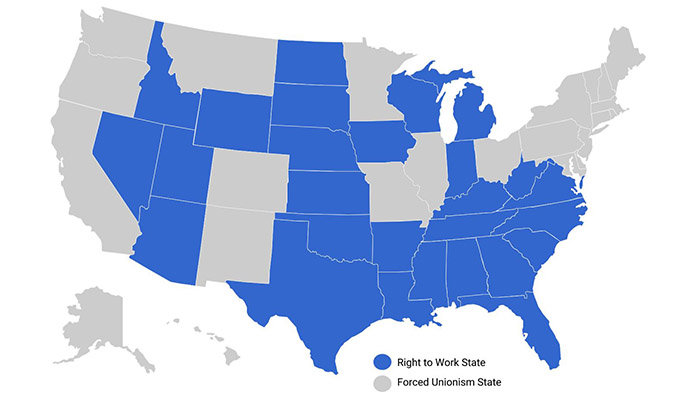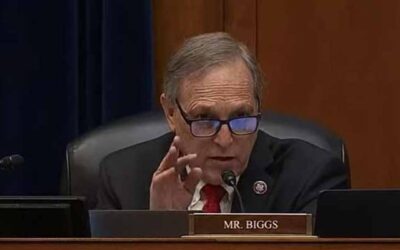By Terri Jo Neff |
As the finger-pointing continues as to why April’s job growth fell far below expectation, business organizations in Arizona are drawing attention once again to what they see as a worrisome obstacle to pro-growth — whether the U.S. Senate will approve the H.R. 842, also known as the PRO Act.
The PRO Act, which stands for Protecting the Right to Organize Act of 2021, passed the U.S. House of Representatives in March but has not yet had a committee debate in the Senate. Arizona Senators Kyrsten Sinema and Mark Kelly are among only three Democrats who did not co-sponsor the bill, which would enact sweeping changes to the National Labor Relations Act and other labor laws, including an override to Arizona’s longstanding “right-to-work” laws.
Arizona is one of 27 states governed by labor laws which ensure workers can choose whether or not to join a union and pay for representation. Employees in states without right-to-work laws can be required to pay union dues and fees in order to secure employment.

Millions of workers in Arizona and 26 other states would lose their right to work legal protections if Congress passes the Protecting the Right to Organize Act of 2021.
“Senators Sinema and Kelly have not co-sponsored this bill,” Glenn Spencer of the U.S. Chamber of Commerce said last week in an interview with Chamber Business News.. “That’s a good thing. People in Arizona should thank them for standing up for workers and right-to-work and employers.”
Major labor unions such as the AFL-CIO back the Pro Act, which President Joe Biden has already signaled he will sign. The possibility of severe changes to labor laws if the Pro Act is enacted is a cause of uncertainty for owners of all sizes of businesses at a time when the Biden Administration is desperate to follow through on promises of new jobs.
“The PRO Act would, for all practical purposes, eviscerate Arizona’s right-to-work law, which would mean that workers in the state who happen to be in a union work setting would have to pay dues or they would be at risk of losing their jobs,” Spencer said. “Their employers may well be forced to terminate them if they don’t wish to pay dues in that setting.”
And according to Spencer, research by the U.S. Chamber demonstrates that states with right-to-work laws usually have higher rates of economic growth, along with higher rates of job creation and lower rates of unemployment.
But concerns about Arizona’s right-to-work laws being tossed aside is not the only provision of the Pro Act many opponents, including workers, find objectionable.
As written, the PRO Act redefines the long-used criteria to determine who is an independent contractor. It will also restrict the ability of freelancers to have autonomy over their business activities. This could force many workers to be classified as employees, and in many instances those workers would be obligated to choose between paying for union representation or looking for another job.
In addition, the Pro Act’s language does not allow Arizona employees to opt out of having their personal information provided to unions. And the bill will prohibit employee / employer disputes from being addressed via cost-effective arbitration programs. Instead, time-consuming and lengthy litigation, often in the form of class action lawsuits, would be an employee’s only option.
“Employers have concerns about this move, because it is likely to increase the number of class action lawsuits, which are expensive and time consuming for employers and employees alike,” according to a review of the bill by the Snell & Wilmer Law Firm. “Employers with questions or concerns about the effects of the PRO Act should consult with legal counsel for a fuller understanding of its potential impact on their organization.”
On March 5, the Arizona Chamber of Commerce and 19 local chambers issued a letter to Arizona’s Congressional delegation explaining why H.R. 842 would not be good for Arizona. The same concerns were shared by Reps. Andy Biggs, Paul Gosar, Debbie Lesko, and David Schweikert who voted no.
The bill is currently assigned to the Senate’s Committee on Health, Education, Labor, and Pensions. There has been no activity reported by the committee since March 11.








